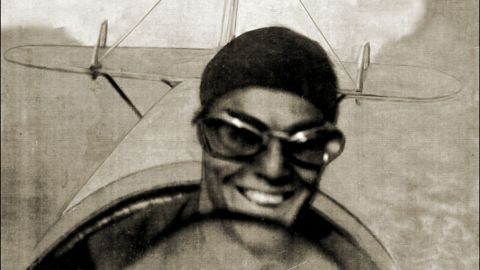The Tyranny of Consensus: Why Flying Solo is Often Best

So if you show up in an organization and you want to allow everyone to actually be able to sense and contribute to that organization’s evolution we need to make sure you have a reliable way to give everyone a voice without getting stuck in what I call the tyranny of consensus. To do that let me use a metaphor to point out what you’re looking for because it’s very easy to get stuck as soon as you try to give everyone a voice.
The metaphor is a true story from own past. I have a private pilot’s license and when I was first learning to fly my first cross country solo flight I’m in the plane alone, no instructor and I’m flying hundreds of miles away and just ten minutes into my journey the low voltage light comes on, on my control panel and when you’re a novice pilot they don’t teach you much about the hardware. I had no idea what that really meant. I can guess. But what did I do? Well my instinct was I checked every other instrument in the control panel one by one. The air speed indicator says you’re not losing speed, there is no problem, everything is fine. The altimeter not losing height, everything is fine, no problem at all. The navigation aid, you’re perfectly on course, nothing to worry about. Everything other instrument on my dashboard said there is no problem. So what did I do? I let those instruments outvote the low voltage light and I said it must not be a big problem, I’m going to ignore it. So I kept flying and ignored the low voltage light.
I nearly crashed the plane that day. It was a terrible decision. The last thing you want to do is ignore one of your key instruments sensing something that no other instrument is. And yet, I realized when I got on the ground this is what we do in organizations all the time. We show up at organizations and we become the sensors, the instruments sensing that organization’s reality and more often than not it’s the one lone instrument, person, human that senses something that no one else does. And yet, we see arguments like well I don’t see it as if that’s a valid reason to dismiss what somebody else does see. So what we actually want to do when I’m flying that plane though is not try to take into account every instrument all the time.
If I stared at my dashboard while flying I’d probably crash. What I want to do is not integrate everything every instrument has to say. What I want to do is integrate the minimally sufficient perspectives at every moment in time to keep that plane flying towards its purpose and I think the same is true in organizations. We want to give everybody a voice, but not for the sake of satisfying their own ego, for the sake of helping the organization keep flying towards its purpose. So we don’t want to integrate everything everyone brings all the time. We want to rapidly sort through and get to the minimally sufficient so that we keep the plane or the organization flying towards its purpose.




